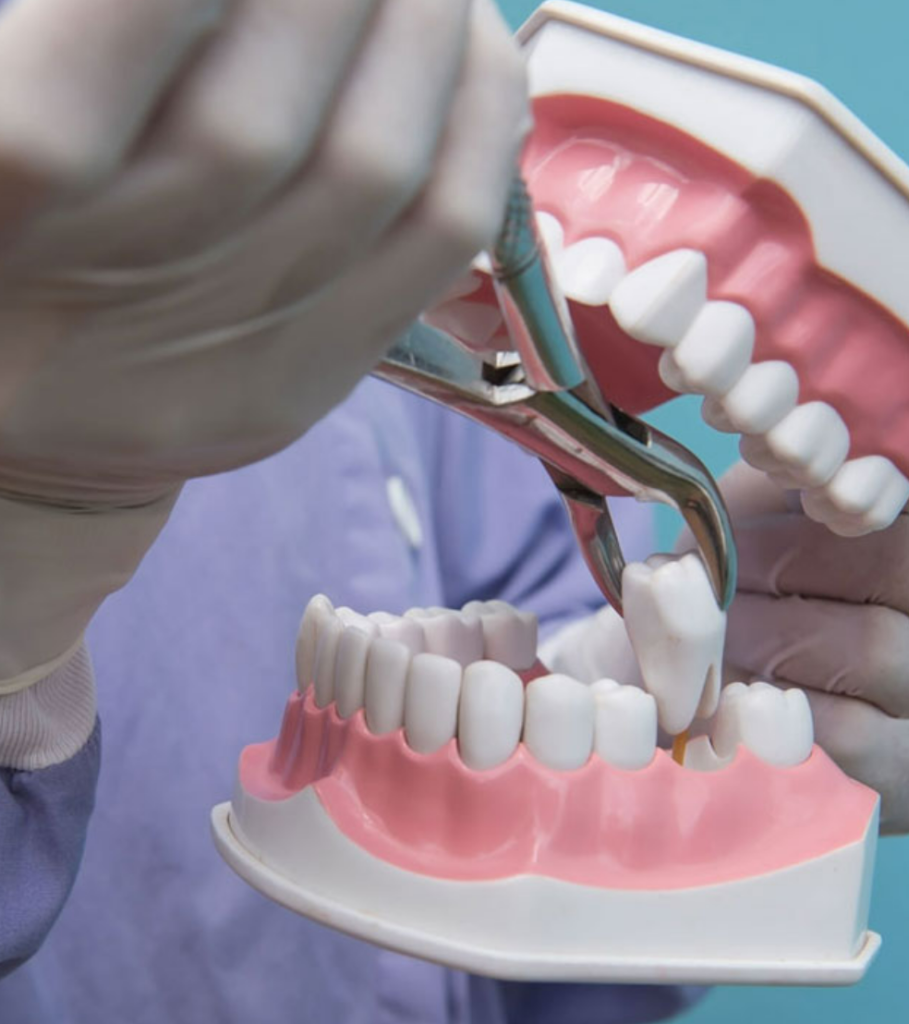
Please Contact Us

Sometimes, people need to have a tooth pulled out. This is called a tooth extraction. This tooth extraction is usually done by a dentist or an oral surgeon. There are various reasons why you might need to have a tooth pulled. Learn what to expect during and after this dental procedure.
You might need to have a tooth pulled out if you have:
Wisdom teeth, which are the last adult teeth to arrive, sometimes need to be removed. They can become stuck if they don’t have enough space to grow properly.
If you need a tooth to be removed, your dentist will usually give you a local anaesthetic to numb your mouth so you don’t feel pain. Your dentist will then use a special tool to loosen the tooth in the gum. Once the tooth is loose, they will remove it with forceps.
If your tooth extraction is more complicated, you might need to be given a general anaesthetic, which will put you to sleep.
After your tooth has been removed, your dentist will probably need to make sure the gum socket is clean. If you needed a cut in the gum during tooth removal, you might need a stitch to close the cut.
You might have some bleeding and if so, the dentist will usually ask you to bite down on a piece of gauze to stop the bleeding.
Once the anaesthetic wears off, you will probably have some pain. Your dentist might write you a prescription for pain relief medicine or recommend an over-the-counter medicine.
You’ll also probably be told to eat soft foods and chew on the unaffected side of your mouth for a while. Be careful not to bite your lip while it is numb. You should rest and avoid physical sports, smoking and drinking alcohol for the next 24 hours.
Usually, the wound will take 1 or 2 weeks to heal. However, contact your dentist if you have:

Let us know your problem, make an appointment and receive the best advice
from specialists in the field.